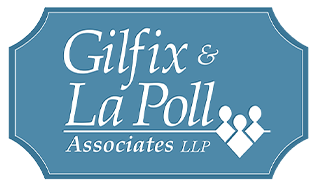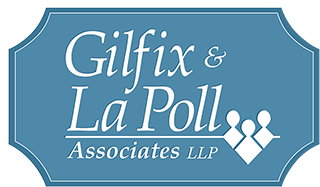
Palo Alto Proposition 19 Attorneys
Navigating What This Change to California Law Means for the Bay Area and All of California
What is Prop 19?
Proposition 19 was passed by California voters in late 2020 and took effect in February of 2021. This wide-reaching constitutional amendment substantially alters how homeowners are taxed. It can present massive problems for families who wish to preserve low property taxes for future generations.
Proposition 19 Explained
This proposition makes it easier for those over the age of 55, or those with a disability to move within the state of California while retaining their existing property tax base. However, Prop 19 undid protection for parent-child transfers of real estate previously provided by Proposition 58. Without proper planning, this proposition means that many families may face massive property tax increases for future generations.
Downsides of Prop 19
Proposition 19 means that all property outside of a primary residence – including rental properties, a vacation home or cabin, or any other real estate - will be fully reassessed at fair market value when it passes from a parent to a child or children. This can result in an increase in property taxes for long-held investment properties of 10s of thousands of dollars or more. For example, if a parent owns a rental duplex with a current assessed value of $100,000, but with a fair market value of $1 million, property taxes could go up 10x when the property passes to the next generation! However, this can be eliminated with our Prop 19 planning tools.
Even the primary residence is affected. If a child or children claim a parent’s primary residence as their own within a year of receiving or inheriting the property, Proposition 19 means that the first $1 million in fair market value beyond the assessed value is protected from reassessment. For many in the Bay Area, this still results in a massive increase in property taxes. For example, if a parent owns a home in Palo Alto that has an assessed value of $500,000, but a fair market value of $3.5 million, only $1.5 million in fair market value would be protected from a reassessment for a child who resides in the house after receiving it. Thus, $2 million ($3.5 million minus $1.5 million) would still be exposed to a reassessment, resulting in property taxes going up by over 4x in this case!
More Challenges
Another challenge: If a child does not claim a parent’s primary residence as their own – perhaps keeping it as a rental property – property taxes for the family home are fully reassessed at fair market value. Prop 13 and Prop 58 protections are gone. From the example above, the assessed value of the family home in Palo Alto would increase from $500,000 to $3.5 million – no protections. Property tax increases can reach hundreds of thousands, or even millions of dollars for future generations – unless families plan ahead.
Get Expert Advice From Our Palo Alto Prop 19 Attorneys
If you hope to leave real estate property to your children or you are an older homeowner looking to move to a more expensive home, Proposition 19 likely affects you. Our Palo Alto Proposition 19 lawyers can walk you through how these legislative changes may impact your estate plan and other critical financial planning decisions. Our team at Gilfix & La Poll Associates LLP has over 35 years of legal experience and has saved hundreds of millions of dollars in taxes for our clients. We know how to approach complex taxation issues and can provide you with the guidance you need to achieve your goals.
Related Blogs
If you have questions about Proposition 19, do not hesitate to get in touch with us. Call (650) 683-9200or contact us online!

How Proposition 19 Impacts Homeowners
Some homeowners may substantially benefit from Proposition 19. Previously, many homeowners faced exponentially higher property tax bills when purchasing and moving to new homes. There was some limited ability for certain categories of homeowners to prevent property tax reassessment and thus avoid some or all of the associated tax burden.
Proposition 19 significantly expands this ability and allows some homeowners to transfer their existing home’s tax basis throughout the state. Eligible homeowners can also now transfer their tax basis three times instead of only once. To qualify for this benefit, a homeowner must have lost their home to a natural disaster, be at least 55 years old, or be disabled.
If you are at least 55, you will likely be able to more easily move to a more valuable property without being subject to harsh tax penalties. Proposition 19 offers increased flexibility over the previous system by giving you the opportunity to move anywhere in California. Increased ease in facilitating real estate transactions can help you more efficiently manage your assets, prepare for the future, and preserve generational wealth.
Proposition 19 also potentially represents a boon to disabled homeowners and families that care for loved ones with a disability. If you live with a disability, you will have increased freedom to move without incurring tax consequences. If you are a parent hoping to leave your home to your disabled child upon your death, your child with special needs will also eventually enjoy this enhanced flexibility so long as they use the inherited property as their primary residence.
Have Questions? Talk To Prop 19 Lawyers at Gilfix & La Poll Associates LLP.
It can be difficult to understand how Proposition 19 specifically influences a homeowner’s potential tax burden. Our Palo Alto Proposition 19 attorneys can walk you through how the amendment functions and how it affects or does not affect your real estate options.
-
Certified Specialists in Estate Planning & Elder Law
-
Co-Founder of the National Association of Elder Law Attorneys
-
Pioneers in Elder Law & Estate Planning
-
Hundreds of Millions of Clients' Dollars in Taxes Saved
-
Thousands of Families in the Community Served
-
Over 35 Years of Serving the Bay Area
How Does Proposition 19 Impact Inheritances?
Proposition 19 will adversely affect many planned inheritances involving real estate property. Previously, when a child inherited a home from a parent, they were able to retain existing property tax payments, even if they did not intend to use the home as a primary residence. Now, inherited properties will be taxed at current mark value if they are used as second homes or investment properties.
These even impact inherited properties that are used as primary residences. If you wish to leave your California family home to your child, for example, they will be able to continue to maintain your lower property tax rates so long as the property remains their primary residence – but only for the first $1 million in fair market value above the assessed value. If the fair market value of your home is more than $1 million over the assessed value, there will be a property tax increase, even if the home is used as a child’s primary residence. Planning ahead can eliminate this issue.
Significant Challenges For Larger Estates
Investment properties and second homes are often incorporated into estate plans. Dividends from investment properties are also often used to fund trusts and provide for family members with special needs. Without planning ahead, when these properties are passed to a new generation, they will now be taxed at new, higher rates.
Serving The Bay Area for 35+ Years: Saving Clients Hundreds of Millions in Taxes
Our Palo Alto Proposition 19 lawyers can help you adjust your estate plan to proactively address and prepare for these new tax consequences. Our team at Gilfix & La Poll Associates LLPis extensively familiar with how to strategically structure estate planning documents to minimize the impact of many types of taxes, including federal estate and gift taxes. We are committed to providing you with long-term care and can keep you appraised of other legislative changes that may impact your planning efforts.
Get the dedicated and comprehensive legal guidance you deserve by calling (650) 683-9200 or contacting us online.



